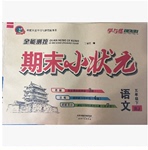题目内容
1.The doctor made a _____(处方)for his long term condition.
2.The little birds were a _______to beat their wings when they saw their mother flying in the sky.
3.Many children from w_____families in China are pursuing education abroad regardless of the cost.
4.Western diet c______a lot of sugar and fat in the form of hamburgers, sandwiches and French fries.
5.Without the keyword, nobody can have a______ to my computer.
6.India became i_______of Britain in1947.
7.College students should visit the library______(经常地,频率高地)
8.Be careful about these chemical______(物质),For they might be poisonous.
9.People in China are working hard to_____(创造)a strong and prosperous country.
10.When you are in physical or mental disorder, please seek_______(专业的)help.
 全能测控期末小状元系列答案
全能测控期末小状元系列答案
